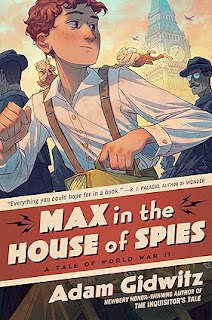 Private citizens or organizations had to guarantee payment for each child's care, education, and eventual emigration from Britain. In return, the British government agreed to allow unaccompanied refugee children to enter the country on temporary travel visas. It was understood that parents or guardians could not accompany the children, but once the war ended, the children would return to their families. The government didn’t cap the number of children who could come, but also didn’t give any money or support to the program, so the refugee aid charities were only able to bring over as many children as they could make arrangements and raise money for covering.
Private citizens or organizations had to guarantee payment for each child's care, education, and eventual emigration from Britain. In return, the British government agreed to allow unaccompanied refugee children to enter the country on temporary travel visas. It was understood that parents or guardians could not accompany the children, but once the war ended, the children would return to their families. The government didn’t cap the number of children who could come, but also didn’t give any money or support to the program, so the refugee aid charities were only able to bring over as many children as they could make arrangements and raise money for covering.The last transport from Germany left on September 1, 1939, just as World War II began. The last transport from the Netherlands left for Britain on May 14, 1940, the same day that the Dutch army surrendered to German forces. In all, the rescue operation brought about 9,000–10,000 children from Germany, Austria, Czechoslovakia, and Poland to Great Britain. Some 7,500 of these children were Jewish. Many children from the Kindertransport program became citizens of Great Britain, or emigrated to Israel, the United States, Canada, and Australia. Most of them would never again see their parents, who had been murdered during the Holocaust.
Similar to the experience of Jews living in Nazi-controlled areas before World War II, refugees today have no choice but to flee their homes when they are threatened by conflict and persecution. They often encounter immense challenges and adversity in their journeys, including exposure to extreme weather conditions, lack of access to proper food, shelter, education, and job opportunities. Because they are forced to confront difficult circumstances and trauma, studying the stories of refugees and genocide survivors can offer students valuable case studies on skills and character traits they can develop for overcoming adversity in their own lives.
You may also be interested in the World War II unit studies and World War II Booklist.
Read
- Saving Hanno (picture book)
- Max in the House of Spies (graphic novel)
- Max Bretzfeld doesn’t want to move to London. Leaving home is hard and Max is alone for the first time in his life. But not for long. Max is surprised to discover that he’s been joined by two unexpected traveling companions, one on each shoulder, a kobold and a dybbuk named Berg and Stein. Germany is becoming more and more dangerous for Jewish families, but Max is determined to find a way back home, and back to his parents. He has a plan to return to Berlin. It merely involves accomplishing the impossible: becoming a British spy.
Watch
Make / Do
- Using a map, follow the Kindertransport (there were several) from points of origin to destination.
- Organize a fundraising activity or a donation drive in your community for unwanted clothing and blankets to send to a refugee camp.
- Decide if the Kindertransport was a success...
- Light a candle on Holocaust Memorial Day, and learn about the Yom Ha'shoah in this unit study.
Vocabulary
- Nazis
- Kindertransport
- Kristalnacht
- Anti-Semitism
- Refugee
- Persecution
- Flee
- Prejudice
Think
- What do you think it is like for modern-day refugee children who come to our country?
- How do you think modern experience are the same, or different, from the Kindertransport?






No comments:
Post a Comment
Note: Only a member of this blog may post a comment.